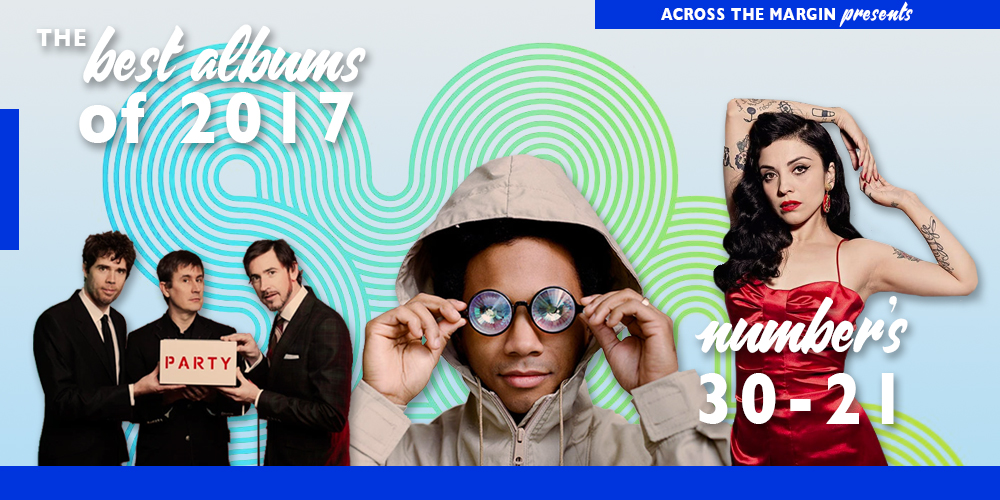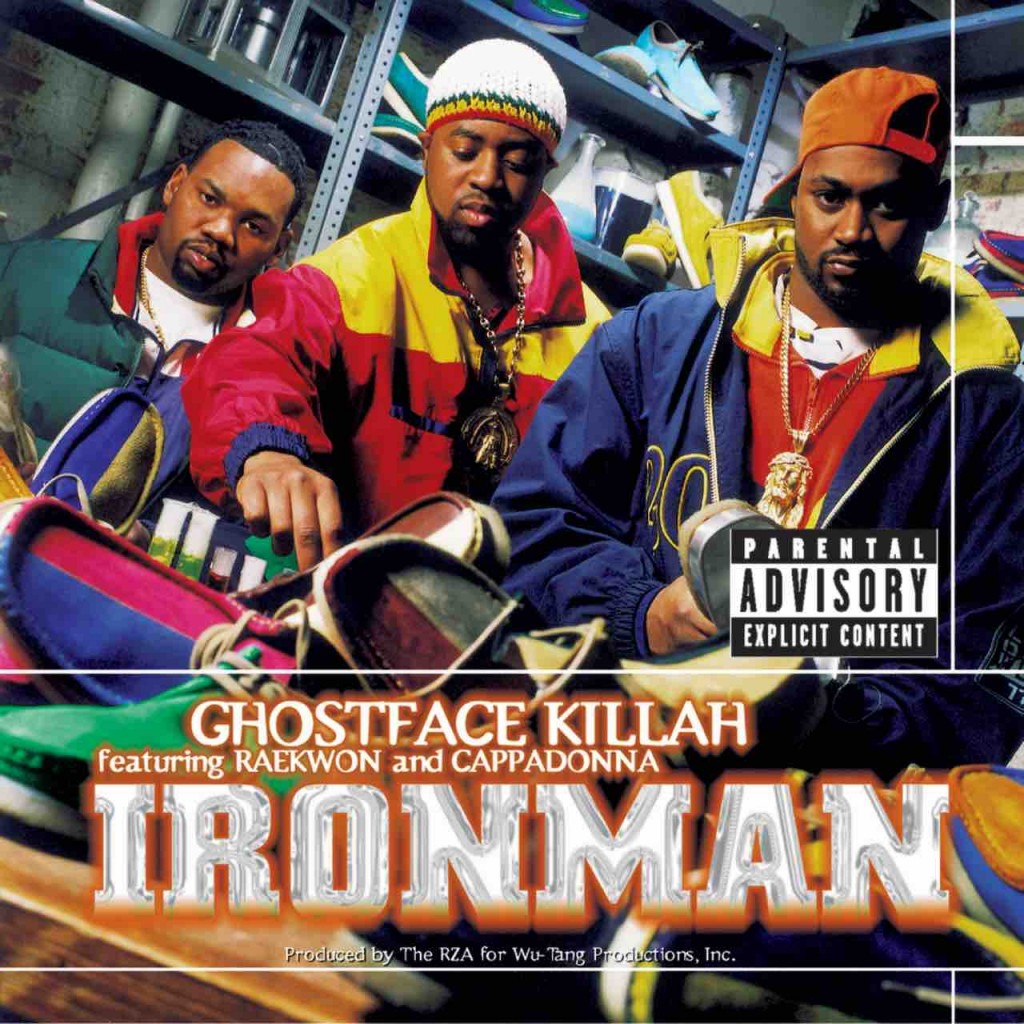A look back at a decade of music that finds me here today bathing in falsetto. How I grew to love Bon Iver….

by: Michael Shields
I guess the root of it can be traced back to my older brother. It’s always your brother, or somebody’s sibling I suppose. The benefit of a few more years on the planet, and with that the chance to educate yourself on what’s poppin’. The fruits of experience handed down to the young ones so they can work on getting their comeuppance. When able, when the menacing creature who once raised me above his head in one movement ((The Snatch, as opposed to the Clean and Jerk. #Londond2012.)) and sent me hurtling towards a couple months of sulking about with a broken clavicle, was out of the house, I would inch into his room and wear out his cassette tapes. I remember all the covers so vividly – a prism transforming a single white line to a literal rainbow of colors, four men returning their zippers to their upright position after relieving themselves on a lone concrete slab, and so on. It was my first real taste of the adventurous and abstract nature of music as I was, when not robbing my sibling’s taste, simply gulping down with vigor whatever MTV was feeding me at that point, which wasn’t really all that bad truth be told, but this was different. Jim James ((My Morning Jacket, Monsters of Folk)) is quoted as saying “we are all victims of classic rock,” I, too, was a casualty of that war.
The groundwork laid, the foundation of how I ended up bathing in falsetto is pretty much what you would expect from a kid straight out of a stereotypical suburb. But that isn’t the whole story. There is much more to it. Inarguably (try me!) the most relevant thing to happen in the music industry during the 1990s was hip-hop’s rise into the main fray. I was swept up in it and although many genres have fallen in and out of my graces, my love of the boom-bap has never wavered. In the early 90s hip-hop lured me in with the strong bait of the Wu, as 36 Chambers was on bump, constantly. L’s after school had us all thinking we were much harder than we were. It was empowering. In fact, that is one of the greatest strengths and underlying reasons for hip-hop’s success. Everyone wants to be a gangster and hip-hop makes us feel as such. A strong hip-hop arm was cultivated through the mid 90s as the all time greats dropped their classics (Illmatic, Reasonable Doubt, Only Built for Cuban Linx, Del la Soul is Dead, Aquemini, The Infamous, Liquid Swords, The Chronic, Check Your Head, Ready to Die, Ironman, etc.), and when hip-hop became conscious ((Once again, shout out to KRS-One and Chuck D!)) late in the decade with Black Star, Common, the Solesides crew, and the dysfunctional Rawkus family, I was deeply entrenched on the front lines. Concurrently, when hip-hop got weird due to Kool Keith, Company Flow, Aesop Rock and the like…even better as I was growing a taste for the offbeat.
Wait, you may be saying, how does this relate to Justin Vernon’s unique brand of folk? Fair question but trust me, all the pieces matter.
In the late 1990s I finally packed my bags and was released from the imprisonment ((So I thought at the time – hindsight tells the story a bit different as I was engorged in a life of worry free luxury.)) of the helmet and knee pads of living at home with parents, and I checked into a Bachelor of Science program at the state university. Here is where the magic happened. Here is where a boy became a man forever altered by the experiences that awaited. If you are not opening your mind up during those four to five to possibly six collegian years, that door is doomed to forever remain closed. It is imperative that one not test waters, One must dive in, fully clothed if need be.
It might be hard to fathom with its popularity these days, but EDM once had a heyday, which was located squarely in this under hyped, oft overlooked, decade of the 90s. It had a moment where it was as popular as underground music could be. The nation was going crazy for it and parents were huddled tightly together trying to figure out exactly what the word “rave” meant, as Buddy Holly’s translation just didn’t seem appropriate. I didn’t have a nose ring or a saucer in my earlobe, but I assure you the people I gathered amongst in hotel rooms late night (early morning I should say) sure did. Countless nights were spent in darkened rooms with lights able to seizure even the most seasoned of glowstick spinners, with performers such as Oakenfold, Aphex Twin, Sasha, Digweed, Massive Attack, Van Dyk, and other hopefuls who ingratiated me to the power of computer generated noise. Before this brand of music was labeled in a tight little box of “EDM” it was alive and well and being soaked up by thirsty juveniles like an able sponge.
We are slowly but surely getting somewhere. I promise.
Hip-hop and electronica were not the only genres having banner years in the 1990s. When we discuss rock in this era we will not be solely speaking about Nirvana, Pearl Jam, Alice in Chains, STP, Smashing Pumpkins and grunge, although it is surely appropriate if we took some time to discuss just that, as the 90s just would not be the 90s without these bands, and what these bands did to advance music is momentous. I do not want to know what the world would look like if Nirvana did not exist. I imagine it would be desolate of bands such as Deer Tick, White Denim, Portugal the Man, and even Ty Segall. I also imagine a naked baby swimming alone in a pool would always be a cause for drastic alarm rather than a brief nostalgic moment.
No, so much more went down. Seminal albums were dropped by prodigious bands such as Pavement ((Slanted and Enchanted and Crooked Rain Crooked Rain and Wowwee Zowee)), Yo La Tengo ((I can hear the heart beating as one and Painful)), Sonic Youth ((Goo and Dirty)), My Bloody Valentine ((Loveless)), Wilco ((Summerteeth)), Ween ((Pure Guava)), and Beck ((Odelay)). These artists, with their novel and eclectic sounds, broke down walls allowing emotion, wit and melancholy to thrive in rock and roll. These artists, eventually, led to me relishing in quaint lyrical moments such as: ”And I told you to be patient – And I told you to be fine – And I told you to be balanced – And I told you to be kind – And now all your love is wasted – And who the hell was I? – I’m breaking at the bridges – And at the end of all your lines.” ((Skinny Love))
One album in particular had me wide open. I still have that Challenger / OJ’s White Bronco memory of its first listen, as I know exactly where I was when it occurred, when my senses got assaulted by a piece of intricate music with a rare form of subtle power I had yet to stumble upon. Tortoise’s TNT was more delicate than the music that rocked my stereo at the time, and more complex. A group of classically trained musicians from the Chicago area created a sound that was barely describable. Labeled as “post-rock,” the band fused seamlessly dub, dance, jazz, techno, rock, and classical minimalism, with no part overpowering or overshadowing the whole. A sound that has whiffs of Miles and scents of Coltrane. One that, on the surface, was easy to listen to, but underneath it was hearty and layered. I couldn’t get enough of it.
All the while I was obsessed with a quartet from Vermont versed in the art of long form progressive and improvisational rock. A band called Phish that toured often, and I with it, as their sets were varied and intoxicating. A band that could transition from a psychedelic rock journey with a heavy metal undertone into a melodic whisper at the drop of a hat. Then an English rock band from Abingdon, Oxfordshire caught my fancy. One with a transportive expansive sound, that was laced with emotive lyricism ((Sung in a high keening sound, bordering on the edge of FALSETTO!)), who in 1997 dropped what I at the time would call the perfect album, entitled OK Computer.
I had a taste for the eclectic and no genre was off the table at this point. My pulse raced to the French duo Air’s masterpiece Moon Safari. DJ Shadow’s Entroducing introduced me to the art of sampling and its many capabilities. Stereolab’s Emperor Tomato Ketchup couldn’t find its way out of my stereo if it tried. I even checked my man card in and fell for the childhood woe and sensitivity of Belle and Sebastian. I was all in. And when I needed an edge, something grimy and gritty, I looked no further than Tool, Fugazi, Trans Am, Primus, or Rage. The best of both worlds, pulsating out my stereo, one immediately after the other.
Words began to matter more with age and I fell in love with the storytellers. My classic rock roots came home to roost, as the modern incarnations of Bob Dylan and their introspective worldview became my thinking man’s soul food. Jeff Tweedy, Conner Oberst, Will Sheff, Andrew Kenny, David Berman, Jeff Magnum, Colin Meloy, Elliot Smith, Jarvis Cocker, and Will Oldham painted portraits of the world I could never paint, and their narratives hit so very close to home. The sound encapsulating the tales still mattered a great deal, but I was now addicted to wordplay and admired those skilled in the art.
I think you are starting to see where this is headed. We are on a collision course with a man who recorded his debut album in a cabin in northwestern Wisconsin. It all adds up perfectly. It makes sense.
You see Bon Iver is a unique cocktail, one with a plethora of ingredients that intermingle in perfect harmony. That perfect mix of oblique heartbreaking lyrics which somehow surprisingly uplift, layered psych rock, panty-moistening crooning, appealing repetitive hooks, and choir-like symphonies that fill a room when experienced live. Justin Vernon doesn’t sound like anyone else ((Neither did Neil Young for that matter in his heyday.)) and that is a good thing in an oft cookie-cutter ‘if-that-worked-let’s-do-it-again’ industry. Bon Iver is a curious brand of enchanted rock. It is intense while being anything but. It’s non-traditional and everything that I had learned to love about music.
Some may laugh, mock even…but it was in the cards and out of my hands from early on. This direction was chosen for me. I stand here fully self aware that there are parts of myself, pieces from my past, which would never envision myself here, bathing in a sensational bath of falsetto. Feeling fully alive and loving every minute of it. But it is those same parts of me, that when added up, are the exact reason I am.







TNT is one of the centers of my musical universe as well. I thank Tom Rau for inadvertently putting it there. A lot of post-rock artists try to embody Steve Reich, I think this is the album that succeeds and continues to move forward on that tip.